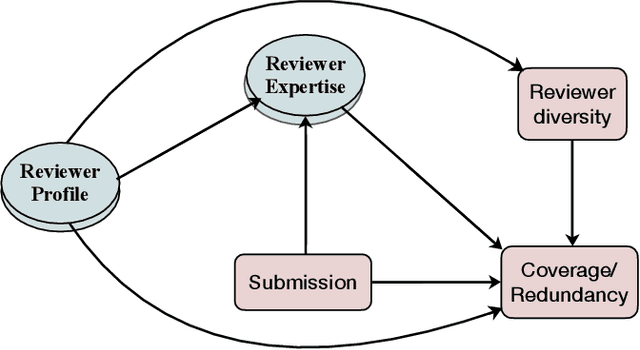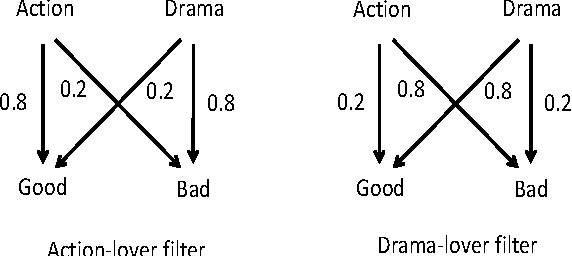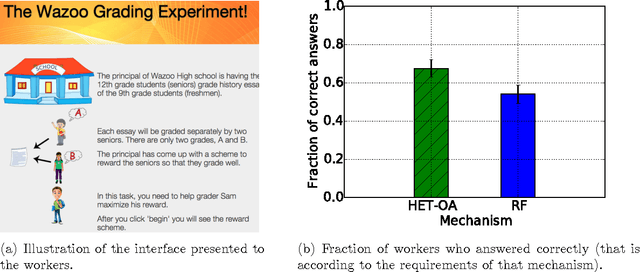Nihar Shah
Causal Effect of Group Diversity on Redundancy and Coverage in Peer-Reviewing
Nov 18, 2024

Abstract:A large host of scientific journals and conferences solicit peer reviews from multiple reviewers for the same submission, aiming to gather a broader range of perspectives and mitigate individual biases. In this work, we reflect on the role of diversity in the slate of reviewers assigned to evaluate a submitted paper as a factor in diversifying perspectives and improving the utility of the peer-review process. We propose two measures for assessing review utility: review coverage -- reviews should cover most contents of the paper -- and review redundancy -- reviews should add information not already present in other reviews. We hypothesize that reviews from diverse reviewers will exhibit high coverage and low redundancy. We conduct a causal study of different measures of reviewer diversity on review coverage and redundancy using observational data from a peer-reviewed conference with approximately 5,000 submitted papers. Our study reveals disparate effects of different diversity measures on review coverage and redundancy. Our study finds that assigning a group of reviewers that are topically diverse, have different seniority levels, or have distinct publication networks leads to broader coverage of the paper or review criteria, but we find no evidence of an increase in coverage for reviewer slates with reviewers from diverse organizations or geographical locations. Reviewers from different organizations, seniority levels, topics, or publications networks (all except geographical diversity) lead to a decrease in redundancy in reviews. Furthermore, publication network-based diversity alone also helps bring in varying perspectives (that is, low redundancy), even within specific review criteria. Our study adopts a group decision-making perspective for reviewer assignments in peer review and suggests dimensions of diversity that can help guide the reviewer assignment process.
A Truth Serum for Large-Scale Evaluations
Feb 16, 2018

Abstract:A major challenge in obtaining large-scale evaluations, e.g., product or service reviews on online platforms, labeling images, grading in online courses, etc., is that of eliciting honest responses from agents in the absence of verifiability. We propose a new reward mechanism with strong incentive properties applicable in a wide variety of such settings. This mechanism has a simple and intuitive output agreement structure: an agent gets a reward only if her response for an evaluation matches that of her peer. But instead of the reward being the same across different answers, it is inversely proportional to a popularity index of each answer. This index is a second order population statistic that captures how frequently two agents performing the same evaluation agree on the particular answer. Rare agreements thus earn a higher reward than agreements that are relatively more common. In the regime where there are a large number of evaluation tasks, we show that truthful behavior is a strict Bayes-Nash equilibrium of the game induced by the mechanism. Further, we show that the truthful equilibrium is approximately optimal in terms of expected payoffs to the agents across all symmetric equilibria, where the approximation error vanishes in the number of evaluation tasks. Moreover, under a mild condition on strategy space, we show that any symmetric equilibrium that gives a higher expected payoff than the truthful equilibrium must be close to being fully informative if the number of evaluations is large. These last two results are driven by a new notion of an agreement measure that is shown to be monotonic in information loss. This notion and its properties are of independent interest.
 Add to Chrome
Add to Chrome Add to Firefox
Add to Firefox Add to Edge
Add to Edge